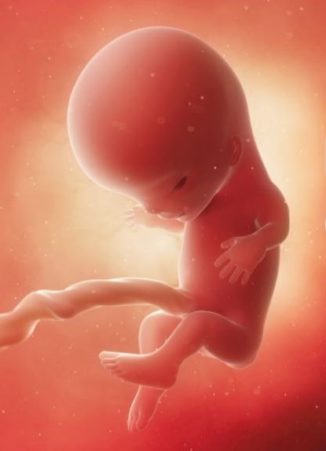Minister Simon Harris and the Health Committee have rejected an amendment to the abortion Bill that would have allowed for a dignified disposal of the bodily remains of aborted foetuses. The rationale of the amendment is to assure that human remains are not treated as clinical waste and sent (for example) to an incinerator, as has occurred in the UK.
Only a few years ago, in Northern Ireland, a young woman bought abortion pills online, took them, and left the male foetus, who was between 10 and 12 weeks, in the bin of the house she shared with other people.
One of the housemates who found the body said of it: “I didn’t expect the baby to be so fully formed. The court was told she was 10 to 12 weeks pregnant when she obtained the tablets, but he seemed older. He had fingers, little toes. Even now I just have a picture in my mind of it. Its wee foot was perfect.
“Even now I feel sick. It has done so much damage to me mentally. It is something I can’t get out of my head. On bin collection day I couldn’t bring myself to put the bin out for collection. I didn’t want to throw a baby away. I didn’t know what to do.”
What does Health Minister, Simon Harris, think should have happened in this case? Or Fine Gael TD, Kate O’Connell, who spoke vehemently against the amendment?
One of the purposes of the amendment was to avoid such horrendous situations and provide for a respectful treatment of those little bodies. According to the amendment, the mother should be entitled to choose for a burial or cremation of the remains. In case she declined to choose, the regulations made by the Minister would decide.
Options for the disposal were offered and not forced, as the woman had a possibility to decline the offer and leave the State to arrange for it to be respectfully dealt with. Otherwise, the Bill does not clarify where those remains should go.
The amendment would have also made an offence to sell or offer to sell a foetus or its bodily remains. This is to prevent what is taking place in other countries, where abortion clinics have been involved in send foetal body parts to research companies.
Some objected to the amendment claiming that there are no similar provisions for the disposal of miscarried babies. But we are regulating abortions at the moment, not other areas of medicine, and there is no reason why such provisions should be not extended to miscarriages as well. (Most miscarriages occur very early in the pregnancy when the embryo is very tiny and perhaps not even visible to the naked eye).
Nonetheless, unlike in a miscarriage, an abortion is chosen and planned in advance. It makes sense that, when there is a discernable foetus, and especially where the abortion takes place in a clinic or hospital, the State takes responsibility and offers options for the proper and dignified disposal of it.
Moreover, in the UK abortions after 24 weeks are registered as still-births and the remains are treated accordingly.
The Bill proposed by Minister Harris does not specify what will happen here with late-term abortions. The amendment would have covered those cases as well.
It is shameful that the Health Committee is rejecting all the amendments presented from pro-life politicians, even when, like in this case, they have absolutely no impact on the possibility to have an abortion. Was it too much to ask that aborted babies are treated with dignity and respect?
(The picture shows a foetus at 11 weeks)
















